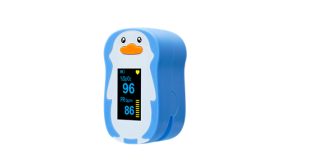When you’re a parent of a premature infant, you have unique concerns and responsibilities, and without the right guidance, this can quickly become overwhelming. Knowing how to protect your baby’s health as they develop, especially in the crucial first six months of their development, will become your top concern as a new parent. Thankfully, we’re here to help, with these five essential dietary tips and considerations for premature infants:
1. Avoid Cow’s Milk-Derived Baby Formula
Cow’s milk-derived baby formula has been proven to be extremely dangerous for premature infants. Over the last ten years, a major lawsuit against Abbott Laboratories (Similac) and Mead Johnson & Company, LLC (Enfamil) has been filed, after their cow’s milk-derived formulas were discovered to lead to NEC (necrotizing enterocolitis) in premature infants.
The infections and continued sickness that can occur due to NEC is no joke, so you must get a pediatrician-approved, safe formula for your premature infant that takes into account the fact that they are premature. If you or someone you love’s infant has been infected with NEC after using a cow’s milk-derived formula, and needs help with claims against formula manufacturers, you must seek legal help immediately.
2. Ensure Their Food is Kept Clean
Cleanliness is of utmost importance to your baby’s safety. Especially for premature infants, making sure their environment, and everything they interact with are clean, is critical to keeping them healthy and secure. This dedication to cleanliness will help improve many other areas of your parenting habit as well!
Alongside improperly manufactured formula, contaminated feeding instruments are a top cause of infections in infants. With the frightening prospect of NEC, keeping your baby’s bottle as clean as humanly possible becomes one of your top responsibilities. Thankfully, practically all baby feeding instruments are made easy to clean these days, making your life as a parent that much easier as a result.
3. Feed Them In Small, But Frequent, Portions
When you’re feeding a premature infant, you must remember that they have tiny bellies (much smaller than their non-premature counterparts). Due to this, feeding them as if they have full-sized stomachs can lead to pain, digestive issues, and fits of crying that will keep you both up all night. Additionally, premature infants often have a harder time eating a lot at once, because their mouths are not as fully developed, and cannot suck and swallow as masterfully as their non-premature counterparts.
These two conditions make it essential that you feed your premature infant both smaller portions, and more frequently than what would normally be suggested. Because of the more complex nature of setting up your premature infant’s feeding schedule, you should consult with their doctor before making a final decision. Doing so will save both you and your child a lot of stress in the long run.
4. Take Advice from Your Pediatrician
Speaking of their doctor, your infant’s pediatrician is going to be your go-to source for all questions regarding your premature infant’s daily care and nutritional needs. On top of ensuring that you’re using the right formula, that you’re feeding them on a proper schedule, and that you’re cleaning their feeding equipment correctly, a pediatrician can guide you towards additional nutritional supplementation that your premature infant might benefit from as they continue to develop.
While your premature infant is still in the hospital, many health care professionals will combine human milk fortifiers with additional nutrients (such as protein, minerals, and vitamins), to ensure their healthy growth. Thankfully, the pediatrician will make the process of transitioning this combination of food and nutrients from the hospital to your home, much easier than you might expect. Just make sure you’re choosing a formula you can get regularly during the ongoing formula crisis.
5. Keep Their Digestion as Easy as Possible
All of the above tips and considerations are designed to achieve this step. In your premature infant’s early months of life, digestion is the number one bodily process that will make or break their ability to be comfortable, and for them to grow healthily. Without the ability to digest food comfortably and safely, your infant will not have the ability to develop in a truly effective fashion.
Premature infants are typically not given solid foods until six months, so be sure to avoid even small amounts of solids until this point (or until your pediatrician gives you the OK). Otherwise, they will develop easily avoidable digestion issues that could lead to side effects (both major and minor).
Here’s to Your Premature Infant’s Healthy Development
With the right amount of research, determination, and oversight, you can ensure you’re taking care of your premature infant’s unique nutritional and developmental needs effectively. Especially in 2022, the unique needs your premature infant will require have become easier to deal with, so never be afraid to ask for help. Doing so will ensure your new child’s first few months of life go as smoothly as humanly possible.
 Naa Songs
Naa Songs





